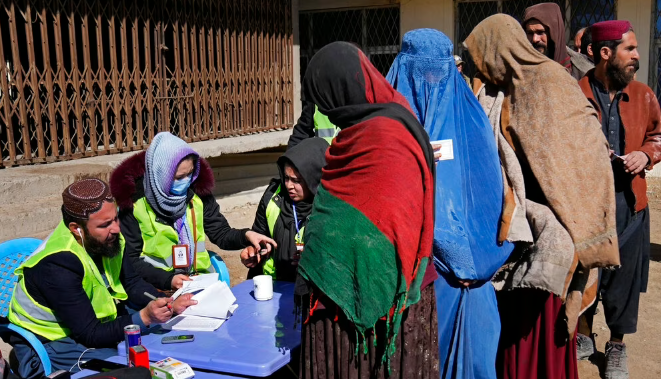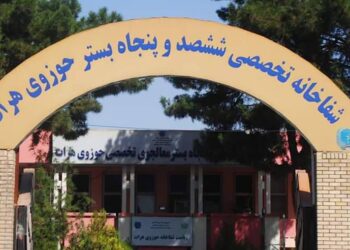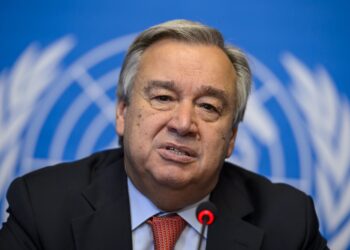The United Nations Development Program (UNDP) published its annual report on Afghanistan, which has evaluated the economic and humanitarian situation from August 2021 to December 2022 and estimates have been made for 2023.
It was stated in the report that 30 percent of Afghan families are receiving humanitarian assistance, and if the international community halts it, the humanitarian situation will deteriorate.
The ban on women’s work and education has been mentioned as the biggest concern in the report and it has been estimated that it may affect the international aid to Afghanistan.
The report reads: “If international aid organizations and countries stop their aid to Afghanistan as a reaction to the ban on women’s work and education, poverty and unemployment will rise in the country and people’s daily income will decrease.”
According to the report, Afghans are now looking for options to salvage their lives and get out of the economic and humanitarian crisis, which include selling household goods and land, child labor, and girl’s pre-mature marriages.
The report further said that bans on UN’s female staff do not threaten their activities but the lives of the needy Afghans who depend on humanitarian aid.
“70 percent of the people in Afghanistan are informed about humanitarian aid by the United Nations agencies, and this is mostly done by our female employees, who knock on the doors of houses and talk to women nearby. If they cannot go to work, who will help the women? Therefore, the impact of this decision is not on our female staff and our activities, but on the needy women in Afghanistan.” Abdallah Al Dardari, head of UNDP in Afghanistan, said
Al Dardari rejected the reports that the United Nations Development Program is leaving Afghanistan.
He added: “For now, my instructions are that we stay and provide our assistance. The issue of leaving Afghanistan is a general decision of the United Nations, which will be made on a large scale.”
Many ambassadors also attended the publication ceremony of the report.
Takashi Okada, Japan’s Ambassador in Kabul, said that the international community is still willing to assist Afghanistan, but if the Afghan government does not soften its decisions, the country’s economic growth will be affected.
Okada added: “I assure the international community’s assistance to Afghanistan, but unfortunately, the policies of the Taliban make it very difficult, especially the restrictions on women’s work and education. If the Taliban change their policies, the percentage of economic growth in Afghanistan will increase greatly.”
The report estimated that in 2023, the level of international aid will be 3.7 billion dollars, the same as it was in 2022, and Afghanistan’s GDP may increase in the next two years.
Afghanistan’s estimated economic growth in 2023 is as follows.
The report reads: “Increase in Afghanistan’s exports and GDP, stability of the Afghani currency and low inflation. In 2023, it is estimated that the GDP in Afghanistan will increase by 1.3 percent, but this is less than the increase in population.”
It is also stated in the report that in 2020, only 19 million poor people lived in Afghanistan, but in 2022, the number of these people has increased to 34 million. The report also stated that according to the findings, 92 percent of the families in Afghanistan depend on humanitarian aid and have no way to get out of the economic crisis.
















